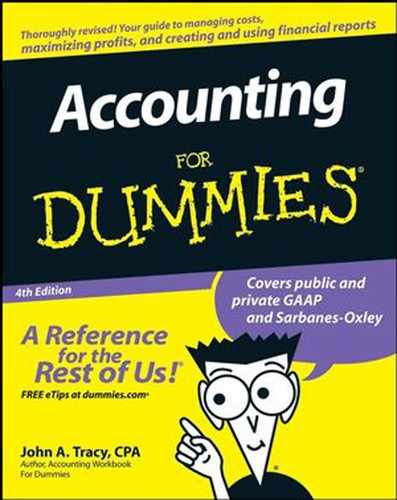Chapter 10. Financial Planning, Budgeting, and Control
In This Chapter
Defining the benefits of budgeting
Budgeting profit and cash flow
Keeping budgeting in perspective
Staying flexible with budgets
A business can't open its doors each day without having a pretty good idea of what to expect. And it can't close its doors at the end of the day not knowing what happened. Recall the Boy Scouts' motto: "Be prepared." A business should follow that dictum: It should plan and be prepared for its future, and it should control its actual performance to reach its financial goals.
Business managers can wait for results to be reported to them on a "look back" basis, and then wing it from there. Or, they can look ahead and carefully plan profit, cash flows, and financial condition of the business, to chart its course into the future. The plan provides invaluable benchmarks; actual results can be compared against the plan to detect when things go off course.
Planning the financial future of a business and comparing actual performance against the plan are the essence of business budgeting. Budgeting is not an end to itself but rather a means or tool of financial planning and control.
But keep in mind that budgeting costs time and money. The business manager should put budgeting to the cost/benefit test. Frankly, budgeting may not earn its keep and could actually cause serious problems that contradict the very reasons for doing it.
Budgeting offers important benefits, but a business may decide not to go to the effort of full-scale budgeting. I can't argue with a minimal budgeting strategy for some businesses. However, a business should not throw out the budgeting baby with the bathwater. Certain techniques used in budgeting are very useful even when a business doesn't do formal budgeting.
